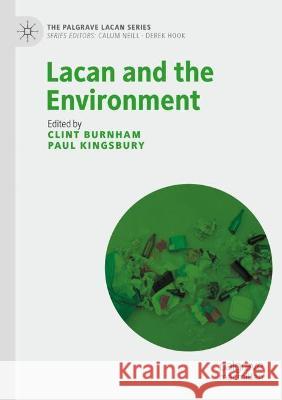Lacan and the Environment » książka
topmenu
Lacan and the Environment
ISBN-13: 9783030672072 / Angielski / Miękka / 2022
In this exciting new collection, leading and emerging Lacanian scholars seek to understand what psychoanalysis brings to debates about the environment and the climate crisis. They argue that we cannot understand climate change and all of its multifarious ramifications without first understanding how our terrifying proximity to the real undergirds our relation to the environment, how we mistake lack for loss and mourning for melancholy, and how we seek to destroy the same world we seek to protect. The book traces Lacan’s contribution through a consideration of topics including doomsday preppers, forest suicides, Indigenous resistance, post-apocalyptic films, the mathematics of climate science, and the relevance of Kant. They ask: What can you do if your neighbour is a climate change denier? What would Bartleby do? Does the animal desire? Who is cleaning up all the garbage on the internet? Why is the sudden greening of the planet under COVID-19 no help whatsoever?
It offers a timely intervention into Lacanian theory, environmental studies, geography, philosophy, and literary studies that illustrates the relevance of psychoanalysis to current social and environmental concerns.











